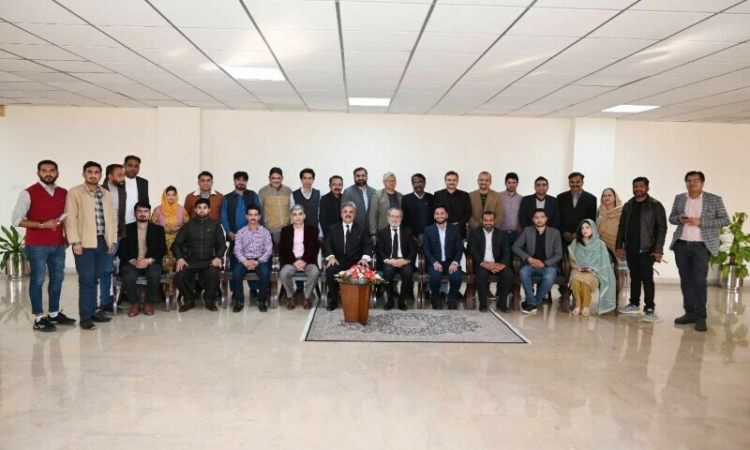Islamabad, February 3, 2025: Chief Justice of Pakistan (CJP) Yahya Afridi on Monday endorsed the transfer of judges to the Islamabad High Court (IHC), despite opposition from the legal fraternity. He termed the move a “fair chance” for judges from other provinces to serve at the federal level.
President Asif Ali Zardari approved the transfer of one judge each from the Lahore, Balochistan, and Sindh high courts to the IHC on Saturday. However, five IHC judges had previously warned that such a move would violate constitutional procedures and judicial norms.
The decision sparked protests from the Islamabad Bar Council, the Islamabad High Court Bar Association, and the Islamabad District Bar Association, which observed a strike in district courts and the IHC, condemning what they called “unconstitutional measures” undermining judicial independence.
Speaking at the oath-taking ceremony of the Press Association of the Supreme Court (PAS), CJP Afridi clarified that the IHC serves the entire nation and not just one region. He emphasized the distinction between judicial appointments and transfers, stating that the transferred judges were already serving in high courts.
“Islamabad symbolizes the federation. Judges from different provinces should be given a fair opportunity,” CJP Afridi said, adding that the process should continue in the future. “A Baloch-speaking judge and a Sindhi-speaking judge have joined—this is a moment to celebrate,” he remarked.
He further asserted that the transfers were conducted per constitutional provisions, specifically under Article 200, which allows the president to transfer judges with their consent after consulting the chief justices of the concerned high courts and the Chief Justice of Pakistan.
Addressing concerns over judicial workload, CJP Afridi highlighted the need for additional judges in the Supreme Court, revealing that he had heard 40 cases in a single day.
The Supreme Court Bar Association of Pakistan (SCBA) also backed the transfers, calling them a “healthy exercise” under constitutional provisions.
In a press release, SCBA President Mian Rauf Atta stated, “Rotation of judges among different high courts enhances judicial exposure, strengthens the judiciary, and dispels any perception of selective justice.” The association dismissed criticism of the move as “undue, unfounded, and politically motivated.”
SCBA further clarified that Article 194 (oath of office) was not applicable in this case since the judges were transferred, not newly appointed. The association emphasized that such transfers have historical precedent and reaffirmed that the transferred judges would retain their original seniority.
Traditionally, the senior puisne judge of a high court is elevated as its chief justice. However, following the 26th Amendment, the Judicial Commission of Pakistan (JCP) introduced new rules allowing the selection of a chief justice from among the five senior-most judges of a high court.
Legal experts believe this restructuring aims to balance representation and efficiency within the judiciary. The recent transfers are seen as a step toward restoring the IHC’s former status as a federal high court with equal representation from all provinces.








